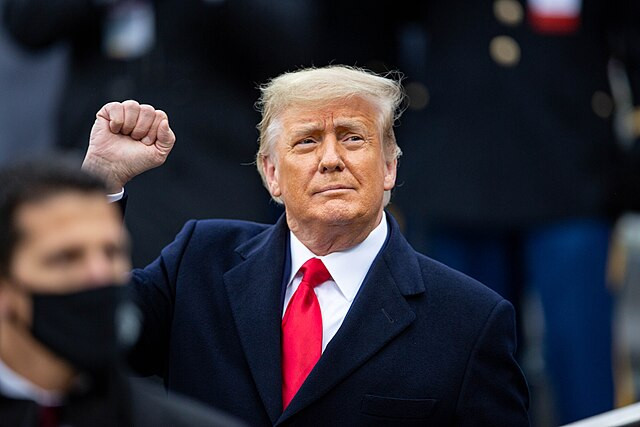In the escalating political climate ahead of the U.S. presidential election, pro-Trump influencers are ramping up rhetoric around illegal immigration, portraying it as an "invasion" designed to bolster Democratic voter ranks, according to Reuters. This narrative, amplified through social media, paints a picture of migrants as a burden and a danger, despite conflicting evidence.
A notable example is Nick Shirley, a 22-year-old influencer with over 318,000 followers, who orchestrated a stunt where Hispanic day laborers were paid to hold signs in front of the White House with slogans like "I Love Biden" and "I Need Work Permit for My Family." In a video posted on YouTube, Shirley tells the laborers, "We want to take you to the White House... What [Biden] did for migrants is very kind, right? Letting everyone come in? So we are going to show him and say thank you."
Shirley, who began his online career with prank videos, has shifted focus to immigration, joining a cadre of influencers who shape the debate with their self-shot dispatches. These influencers often link migrants to crime, echoing a dominant theme of Trump's campaign. Ben Bergquam, another pro-Trump influencer, regularly appears on Steve Bannon's show and hosts "Law and Border" on Real America's Voice. Bergquam describes the influx of migrants as an "invasion" and attributes a surge in violence to their presence, despite data showing otherwise.
During an April visit to New York, Bergquam was seen outside migrant shelters, criticizing President Biden for allowing in migrants he claimed were unable to sustain themselves, including "young thugs out in the street." He told viewers, "You basically took the ills of the world, put them into a blender and turn the blender on in a city that's already been crime-ridden." Despite his assertions, crime data from the New York City Police Department indicates no significant increase in violence attributable to migrants.
The rhetoric of invasion is not limited to influencers. Local politicians, particularly Republicans, are increasingly using similar language. State Assembly candidate Carl DeMaio and El Cajon Mayor Bill Wells have both referred to the situation at the southern border as an "invasion." Former President Donald Trump has also made baseless claims about migrants "building an army" to take over American cities and the country.
Experts warn that such rhetoric is tied to white nationalist ideology and the Great Replacement Theory, which suggests that political elites are bringing in nonwhite immigrants to replace the voting power of native-born white citizens. This theory has been linked to multiple domestic terrorist attacks, including the 2019 El Paso Walmart shooting and the 2022 Buffalo supermarket shooting.
Zachary Mueller, senior research director at America's Voice, a pro-immigrant advocacy organization, expressed concern over the mainstreaming of this rhetoric. "When leaders of the party embrace this sort of rhetoric, it gives permission for others to start embracing that rhetoric," he said. Mueller emphasized that this language lowers the threshold for individuals to act on violent impulses.
Historically, the use of invasion rhetoric in immigration debates has deep roots. Natalia Molina, a professor at UC San Diego, points out that such language has been used to target various immigrant groups over the years, from Chinese laborers in the 19th century to Latino immigrants today. This kind of rhetoric has often led to restrictive immigration policies and mass deportations.
The increase in political spending on anti-immigrant campaign ads is another indicator of the intensifying debate. According to America's Voice, spending on these ads has already reached $160 million this year, on pace to surpass previous records. Mueller anticipates more invasion rhetoric leading up to the November election, urging people to seek out independent, fact-based sources of information.
In a legal context, the use of invasion claims has also been challenged. Texas Governor Greg Abbott's attempt to justify a law granting deportation powers to state and local police was rejected by a federal judge. Judge David Ezra dismissed the argument, stating that unauthorized immigration surges do not qualify as an "invasion" under the constitution.
Despite the divisive rhetoric, there is a need for nuanced discussions on immigration policy. Molina argues that defining the issue as an invasion distracts from serious debate on how to manage immigration effectively. "How do we encourage legal immigration? Is our system even set up for legal immigration? Those are much more nuanced discussions," she said.






